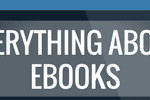Ebook subscription services are changing how people stumble upon and enjoy books. Instead of buying individual books, you get unlimited or bundled access to huge libraries of ebooks for a fixed monthly fee. For book lovers, curious readers, or those searching for references for school or work, this system makes getting into more titles a lot easier and much more affordable. After checking out many options and digging into how they work, I’m breaking down the basics to help you figure out if ebook subscriptions might fit your reading habits.
How Ebook Subscription Services Work
Ebook subscription services work pretty simply. You pay a monthly or yearly fee and get access to thousands (sometimes millions) of books through a dedicated app or website. It’s similar to the Netflix model, but for books. Some services let you download and keep a set number of books at one time, while others allow unlimited reading as long as your subscription is active.
The library size, title selection, extra perks, and cost can vary significantly, so it’s wise to examine closely what each service offers. The biggest providers include Kindle Unlimited, Scribd, Kobo Plus, and some niche options focused on academic or indie books. Libraries also offer their own ebook lending through apps like Libby or Hoopla, though these work a bit differently with waiting lists and loan periods, making them distinct from paid subscriptions.
Popular Ebook Subscription Services
Some ebook subscriptions really stand out for their variety, special features, or price. Here are a few worth checking out if you’re considering one:
- Kindle Unlimited: Amazon’s service offers access to over 4 million titles, including ebooks, audiobooks, and magazines. Not every bestseller is included, but there’s a wide mix of genres, especially indie and genre fiction.
- Scribd: With unlimited access to ebooks, audiobooks, magazines, sheet music, and documents, Scribd’s library is known for good depth. Its flat monthly fee covers everything, and it spotlights lots of trending titles.
- Kobo Plus: Kobo focuses on ebooks and audiobooks, with lots of indie, international, and romance choices. It works well for those already using Kobo ereaders.
- Audible Plus: Primarily for audiobooks, it’s worth a mention because it offers unlimited listening from a rotating collection for audiobook lovers.
- Library Apps (Libby, Hoopla, etc.): Not exactly a subscription, but totally free if you have a public library card. You can borrow ebooks and audiobooks digitally, though hot titles may have waitlists.
Getting Started with Ebook Subscriptions
Getting into ebook subscription services is super simple. Most ask you to sign up, download their app (or use their website), and start browsing your favourite genres or authors. Usually, there’s a free trial period, which is great for exploring the catalog to see if it matches your tastes before you pay.
One key tip: check the device compatibility. Some subscriptions are tied to certain eReaders (like Kindle Unlimited with Kindle devices). Others work on most phones, tablets, and desktops. If you’re planning to use a dedicated eReader, make sure the service’s books will work on it.
Key Features That Make a Difference
Some features can give a boost to your reading experience with ebook subscriptions, making the whole process more convenient and enjoyable. Here are some I find especially helpful:
- Syncing across devices: Start on your tablet, pick up on your phone, or continue on your desktop—your place always stays saved.
- Notes and highlights: Tagging passages, making notes, or highlighting favorites is excellent for students, researchers, or anyone who loves to revisit quotes.
- Offline reading: Download books for those times you’re commuting, flying, or stuck without Wi-Fi. It’s a game-changer.
- Automated recommendations: Most services remember what you liked and point you toward similar reads, which makes tracking down new favorites easy.
- Family sharing: Some subscriptions support sharing with family members. This is becoming more common, so you won’t need to pay for multiple separate plans.
Comparing Subscription Libraries and Selection
Each service really does have its own flavor. Kindle Unlimited is loaded with indie, romance, and genre novels, but tends to miss out on the hottest new mainstream releases. Scribd mixes popular and under-the-radar books and also offers lots of extras like magazines and documents. Kobo Plus fills similar gaps as Kindle Unlimited and shines with certain international and indie authors.
It’s always worth searching each service’s online catalogue for your favourite authors or series before you sign up. Many allow you to preview their offerings, so you’ll know if their selection lines up with your personal to-read list or reading goals.
Things to Consider Before Choosing an Ebook Subscription
Jumping into an ebook subscription can be really tempting, but there are a handful of things you should think about first to make sure the service is a perfect fit for you:
- Device support: Not every ebook format works everywhere. For instance, Kindle Unlimited books don’t work on non-Kindle devices like Nook or Kobo.
- Your reading habits: If you only get through one book a month, buying books or borrowing from the library might make more sense.
- Selection limits: If you crave the hottest bestsellers or rare nonfiction, make sure you double-check their availability.
- Service terms and limits: A few subscriptions require longer commitments or limit how many books you can check out at once. Not all are truly unlimited.
- Geographic restrictions: Some catalogs change based on where you live. Regional publishing rights can make a real difference, so browse the library for your country if possible.
Device Support
If you love using a Kindle or the Kindle app, Kindle Unlimited is a smooth fit. Want more freedom to read on a different device? Scribd or Kobo Plus is probably better. Double-check compatibility before jumping in so you won’t get stuck without a way to read.
Reading Habits and Volume
If you breeze through several books a month, a subscription can really save you cash. But occasional or slow readers might feel like the monthly fee isn’t justified if they aren’t getting enough out of it. Try tracking your reading for a couple months to figure out if a subscription makes sense for you.
Catalog Differences
If mainstream bestsellers are your jam, don’t be shocked if they’re sometimes missing. Many publishers keep the newest releases out of subscriptions, only adding them months later—or sometimes not at all.
Advanced Tips for Getting the Most Out of Ebook Subscriptions
If you want to make the most of your subscription and make book discovery easier, here are a few tips that can help:
Check out curated lists: Subscription platforms often have staff picks, trending reads, and community-created lists. These can be goldmines for stumbling upon new, interesting books.
Try both ebooks and audiobooks: If your subscription lets you swap between reading and listening, mix it up! Audiobooks are perfect for travel or multitasking.
Use tracking tools: Platforms like Kindle Unlimited and Scribd track your reading stats—like how many pages you’ve read, how much time you spend reading, or even how fast you finish books. These stats can inspire you to read more and step up your goals.
Organize your reads: Use features like bookshelf folders or tags to easily find your favorites, reread old gems, or keep series and genres neatly sorted.
Join reading challenges: Some services offer built-in reading goals, badges, or challenges—extra motivation to keep you coming back for more and getting the most value out of your plan.
Real-Life Uses and Who Benefits Most
Ebook subscriptions aren’t just for hardcore readers. Lots of people find them useful, including:
- Students: Access textbooks, assigned reading, or study guides without the hefty price tag or carrying a pile of books.
- Travellers: Keep an entire library on your tablet or phone when backpacking, commuting, or travelling light.
- Researchers: Unlimited reading makes sampling different sources easy, especially with academic subscriptions.
- Book clubs: Everyone can easily grab the same book for discussion, and some subscriptions even add discussion guides and extra content.
- Genre explorers: If you want to check out science fiction one week and biographies the next, subscriptions let you jump from genre to genre without regret—just pick up the next title if one doesn’t hold your interest.
Frequently Asked Questions
People have plenty of questions about ebook subscriptions. Here are answers to some of the most common ones:
Question: Are all books available in ebook subscription services?
Answer: No, big publishers often keep their newest and hottest titles out of subscriptions. Search for favorite authors or series before you sign up—that way, you know what you’re getting.
Question: What happens to my books if I cancel?
Answer: In most cases, access to borrowed ebooks vanishes when you cancel—they remain locked unless you resubscribe. This is standard practice across Kindle Unlimited, Scribd, and similar platforms.
Question: Can I read on multiple devices?
Answer: Most subscriptions let you use several devices, but double-check their help pages or FAQ to see how many devices are allowed at once.
Finding the Right Ebook Subscription for You
Ebook subscriptions knock down barriers to reading more, exploring new genres, and stumbling upon authors you might not have encountered because of price or access. Picking the right service takes a bit of thought—consider what you love to read, your habits, and the features you’ll use most.
Since most subscriptions have free trials, give a few a test run before committing. With the right fit, ebook subscriptions can make reading more affordable, more convenient, and a whole lot more fun. So whether you plough through a novel in a weekend or just want to dabble in a new topic now and then, these services can add a fresh spark to your reading adventures. Happy reading!

